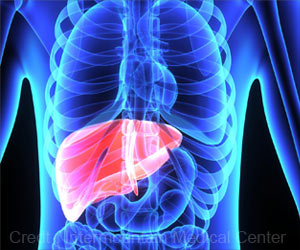- World Hospice and Palliative Care Day is observed on the second Saturday of October
- Palliative care aims to provide relief from the pain, symptoms, and stress of a serious illness
- Hospice care focuses on relieving symptoms when a person living with a serious illness approaches the end of life
About World Hospice and Palliative Care Day
The word hospice is a Latin word “hospitium” which means guesthouse, referring to a place of shelter for weak and sick travelers returning from religious pilgrimages. In the 1960s, Dr. Cicely Saunders, British Physician began the modern hospice movement by establishing St. Christopher's Hospice near London. A team was organized at St. Christopher’s for professional caregiving. This was the first program to use modern pain management techniques to care for people with chronic illness. In 1974, the first hospice in the United States was established in New Haven, Connecticut. Currently, there are more than 4,200 hospice programs in the US, including Puerto Rico and Guam.The Need for Hospice and Palliative Care
About 40 million people need palliative care every year, including 20 million at the end of life. Globally, in about 42% of the countries, there is no availability of palliative care. Nearly 18 million people die in avoidable pain and stress.People with chronic illness are likely to spend a lot of money on treatment, care services, and travel. These expenses can lead to financial risk and palliative care can reduce financial burden driven by a life-threatening illness. Hospice and palliative care aim to improve the quality of life of patients, their families and carers facing life-threatening illness.
More than 75% of the world’s population lacks adequate access to the medications needed to treat their pain. Pain management is essential to hospice, and palliative care and organizations like Worldwide Hospice Palliative Care Alliance improve access to medications for pain management. Hospice and palliative organizations look after the physical, psychological, social, practical, legal and spiritual needs of the person and their family.
Universal Health Coverage and Palliative Care: Don’t Leave Those Suffering Behind!
Palliative care is an essential, defining part of the Universal Health Coverage (promotive, preventive, curative, rehabilitative and palliative health services). Universal Health Coverage (UHC) is for all the people and communities. Governments across the world have committed to achieving UHC as part of the Sustainable Development Goals. Thus UHC should include palliative care to ensure that people do not suffer financial hardship.The World Hospice and Palliative Care Day aims to raise awareness and funds to support and develop hospice and palliative care services. The day encourages local, national and international hospice and palliative care providers and organizations to position palliative care as part of UHC.
Financial risks occur through paying for expensive treatments that are not covered by the country's health systems. The theme highlights that palliative care is an essential service and a defining feature of UHC.
As access to healthcare increases, certain groups are often left behind, and these are the poorest living in rural areas, sex workers and drug users. Thus the theme "Don't leave those suffering behind,' highlights the importance of palliative care.
Palliative care must be integrated into the healthcare system to ensure that no one is left behind. People who need palliative care have some the greatest healthcare needs. The aim of the World Hospice and Palliative Care Day is that no-one should face destitution and poverty paying for expensive medical treatments.
Facts and Statistics on Palliative Care
- Palliative care aims to provide relief from the pain, symptoms, and stress of chronic illness
- Palliative care aims to improve quality of life for both the patient and their family
- Heart disease, cancer, diabetes, stroke, renal disease, Parkinson's and Alzheimer's disease are the most commonly treated illnesses by palliative care
- Palliative care is appropriate at any age and any stage of illness
- Hospice is also known as end of life care
- Hospice care has been used for diseases that have a high burden for caregivers such as cancer, Alzheimer's disease, and kidney disease
- Worldwide Hospice Palliative Care Alliance - (http://www.thewhpca.org/about-us-3)
- About World Hospice and Palliative Care Day - (http://www.thewhpca.org/about)
- World Hospice and Palliative Care Day theme announced - (http://www.thewhpca.org/latest-news/item/world-hospice-and-palliative-care-day-theme-announced)
- World Hospice and Palliative Care Day - (http://www.who.int/cancer/events/palliative_care_day/en/)
- World Hospice and Palliative Care Day 2017 - (https://www.gov.za/speeches/world-hospice-and-palliative-care-day-2017-16-nov-2016-1411)
- Hospice and Palliative Care Awareness Week - (http://patchsa.org/hospice-and-palliative-care-awareness-week/)











